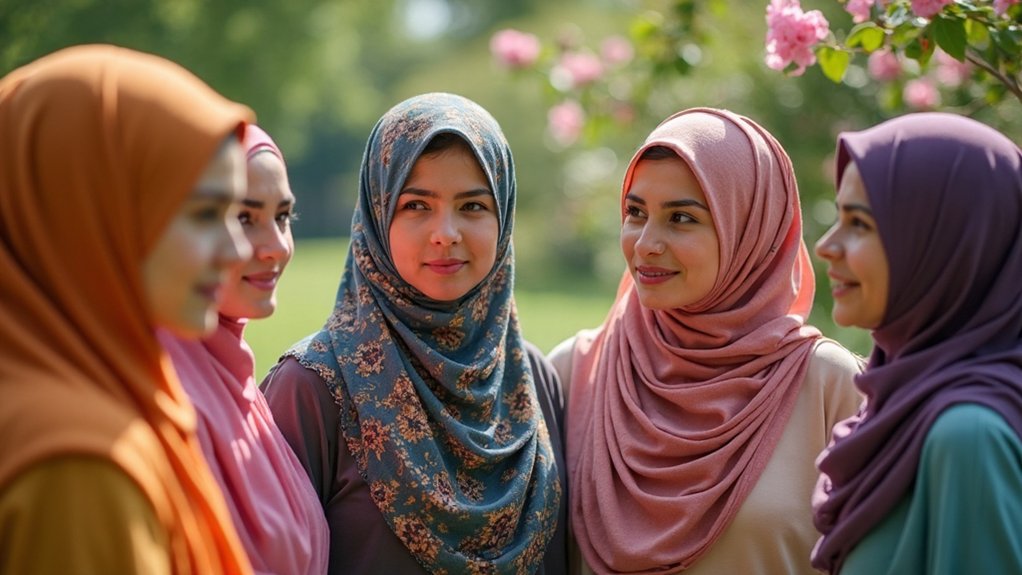
Ramadan at home: what I learned by fasting Ramadan for one day as a Christian
Practices of love and devotion flourish as Muslim families celebrate Ramadan at home, but what unique traditions truly deepen their connections?
Understanding what motivates Muslim women to wear hijab requires looking at the diverse and personal reasons behind this choice. For many Muslim women, wearing the hijab is a meaningful expression of faith and spirituality. Others feel motivated by a sense of cultural identity and belonging.

Some Muslim women wear hijab as a form of empowerment, using it to assert their independence and challenge societal expectations. These motivations often overlap, showing that the decision to wear hijab is shaped by individual beliefs, family influences, and community values.
By exploring what motivates Muslim women to wear hijab, we gain insight into how this practice reflects broader trends in society, culture, and personal identity.
Wearing a hijab is a meaningful expression of personal faith and spiritual connection for many women.
Choosing to wear a hijab shows your dedication to Islamic teachings and helps you feel more connected to your faith community.
With the hijab, you not only demonstrate your devotion to your beliefs but also find a sense of inner peace and purpose.
Embracing the hijab can empower you, deepen your spiritual connection, and support your journey toward a stronger relationship with God.
The hijab is more than just a symbol of faith; it’s a powerful expression of cultural identity and heritage.
Wearing the hijab allows you to connect with your cultural identity and honor the traditions passed down through generations.
By embracing the hijab, you celebrate your unique heritage and show pride in your cultural identity, blending your family’s history with your life in the modern world.
The hijab lets you showcase your cultural identity and heritage every day, paying tribute to those who came before you.
Social and peer influence plays a vital role when it comes to the decision to wear the hijab. The support and encouragement from friends and family can make wearing the hijab feel like a natural and positive choice, helping you feel a strong sense of community.
Seeing others confidently wearing the hijab can inspire and reassure you in your own journey.
However, social and peer influence can also bring challenges, as you might feel pressured to conform to certain expectations.
Ultimately, understanding the impact of social and peer influence is essential when making this deeply personal decision about wearing the hijab.
Choosing to wear the hijab is a meaningful way to embrace empowerment and self-expression.
By wearing the hijab, you have the opportunity to express your unique identity and personal values with confidence. The hijab is more than just a piece of clothing—it represents empowerment and self-expression, allowing you to challenge social expectations and showcase your beliefs.
When you decide to wear the hijab, you make a statement about empowerment and self-expression on your own terms, highlighting your individuality and strength.
Choosing to wear the hijab is closely linked to the idea of modesty and personal choice. For many women, the hijab is more than just a piece of clothing—it’s a way to express their beliefs and embrace their identity.
Wearing the hijab can be an empowering experience, as it allows individuals to set their own standards of modesty and make choices that reflect their values.
Ultimately, whether or not you wear the hijab is a personal decision, and it’s important to do what feels right for you on your own journey toward modesty.
Many women choose to wear the hijab as a meaningful response to the objectification of women in today’s society.
Wearing the hijab allows you to make a statement against objectification, showing that your value isn’t defined by your appearance. By choosing the hijab, you can reject objectification and highlight your individuality, sending a clear message that your identity goes far beyond how you look.
The hijab empowers you to reclaim your narrative and stand confidently against objectification, embracing your true self.
The decision to wear the hijab is deeply influenced by family traditions and expectations.
In many families, the hijab represents a strong connection to cultural heritage and is a way to honor and respect family values. Family members may encourage wearing the hijab, viewing it as a meaningful tradition that reflects shared beliefs.
For many, the hijab provides a sense of belonging and serves as a powerful link between personal identity and family ties.
Wearing the hijab goes beyond personal choice; it plays a powerful role in building community belonging and solidarity.
The hijab connects you with a wider community of women who share similar beliefs and values, fostering a strong sense of community belonging. This shared experience can create lasting bonds, offer support during difficult times, and reinforce your cultural identity.
Wearing the hijab is a powerful political and social statement that can help challenge common stereotypes and assert your unique identity.
By choosing to wear the hijab, you not only embrace your faith but also promote greater awareness and understanding of Muslim culture.
The hijab can inspire important conversations about cultural representation and women’s rights, allowing you to connect with and support others who face similar experiences.
Whether in public or online, wearing the hijab stands as a visible symbol of empowerment and solidarity, highlighting the importance of diversity and respect for personal choice.
Adapting your hijab style to modern life is a great way to express your unique personality while staying true to your values.
Modern hijab style lets you experiment with vibrant colors, different fabrics, and trendy designs that suit your individual taste.
By embracing modern hijab style, you can stay fashionable and confident, blending tradition with contemporary trends.
To sum up, the motivations behind wearing hijab are as varied as the women who choose to wear hijab. Many Muslim women wear hijab to express their personal faith, connect with their cultural identity, or make a statement of empowerment. Wearing hijab is a deeply personal decision that reflects each woman’s unique journey and values.
By choosing to wear hijab, you affirm your beliefs, celebrate your heritage, and showcase your individuality. Ultimately, wearing hijab is about making a choice that feels true to you, helping foster a sense of confidence, strength, and belonging in today’s world.

Practices of love and devotion flourish as Muslim families celebrate Ramadan at home, but what unique traditions truly deepen their connections?

Uncover the profound meanings behind the hijab in Islam and discover why it holds such significance in a Muslim's life.

In understanding why Eid Al-Fitr is important in Islam, one uncovers a tapestry of traditions, gratitude, and community that beckons deeper exploration.

Muslim women must navigate modesty in fashion; discover five clothing types that could compromise your values and confidence. Will your wardrobe make the cut?

Knowing the historical roots of Ramadan reveals profound transformations in the Muslim community—what events ignited this sacred month?

Prepare to uncover the 5 best ways to explain hijab to girls and discover how these insights can transform their understanding.